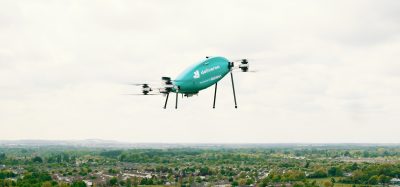How environmentally conscious are consumers in the UK?
- Like
- Digg
- Del
- Tumblr
- VKontakte
- Buffer
- Love This
- Odnoklassniki
- Meneame
- Blogger
- Amazon
- Yahoo Mail
- Gmail
- AOL
- Newsvine
- HackerNews
- Evernote
- MySpace
- Mail.ru
- Viadeo
- Line
- Comments
- Yummly
- SMS
- Viber
- Telegram
- Subscribe
- Skype
- Facebook Messenger
- Kakao
- LiveJournal
- Yammer
- Edgar
- Fintel
- Mix
- Instapaper
- Copy Link
Posted: 26 October 2023 | Grace Galler | No comments yet
The latest Tetra Pak Index has revealed that UK consumers are now “actively considering the environment alongside their individual health when buying food”.


Environmental consciousness when food shopping is now on many consumers’ radars according to the latest Tetra Pak Index.
In fact, 68 percent of consumers believe that healthy products shouldn’t harm the environment and 43 percent consider the future of the planet when making food choices.
The Tetra Pak Index 2023 also revealed that Brits are most likely to cite environmental reasons for excluding meat from diet, with 56 percent of global respondents cite health reasons for adopting a flexitarian, pescatarian, vegetarian or vegan diet, and 36 percent specifically citing the environment as their primary motivator.
But what does this figure look like in the UK specifically? Well according to the results, 47 of Brits surveyed cited health reasons when explaining their adoption of a flexitarian, pescatarian, vegetarian or vegan diet. This figure was the highest out of all the countries surveyed.
Labelled ‘Climatarians’ for their desire to keep the health of the planet in mind when buying food, the report found that there are dedicated environmentally conscious consumers that are willing to alter their eating habits to protect it.
The results of the survey came from data collected in ten countries around the world by global market research firm IPSOS and also revealed that convenience is no longer king. In a marked shift in long-prevailing attitudes, 70 percent globally said they would sacrifice convenience for healthier products. The drive for health is also unaffected by the cost-of-living crisis, with only 17 percent willing to sacrifice food and drinks with health benefits in the current economic climate.
“The findings of this year’s Index are reflective of the direction we have taken in the last few years, to decarbonise the food industry and make food systems more resilient and sustainable. In many parts of the world, people rely on products such as milk and juices for their daily nutrition, so it is critical to optimise their value chain with innovations in sourcing, packaging, processing and distribution, which is where we have been playing an active role together with our customers and suppliers,” said Adolfo Orive, President and CEO at Tetra Pak.
“In addition, considering that the world will need 60 percent more food by 2050, we are complementing these efforts through technologies that can help explore new sources of nutrition – ranging from new plant-based sources to alternative proteins produced with biomass and precision fermentation. Both these areas are critical to contribute towards food system sustainability,” continued Orive.
But will this trend in climate consciousness continue? According to Les Mills, “awareness around the importance of sustainability and climate-conscious shopping will continue to increase this year”, suggesting that this rational is likely to continue into 2024.
Looking at the food innovation in the sector, Tetra Pak shared that breakthrough new food innovations “can play a strong supporting role in delivering products that are not only tasty, but also resource efficient”. In fact, 62 percent of survey respondents shared that they believe technology has a role to play in a more sustainable future.
“This area is developing quite rapidly, and it is difficult to predict when and to what extent it will succeed; but it is only through continued efforts and leveraging collaboration to explore every potential opportunity, that we will find solutions to the current food system challenges” concluded Adolfo.
Related topics
Health & Nutrition, Research & development, retail, Supermarket, Supply chain, Sustainability, The consumer, World Food








